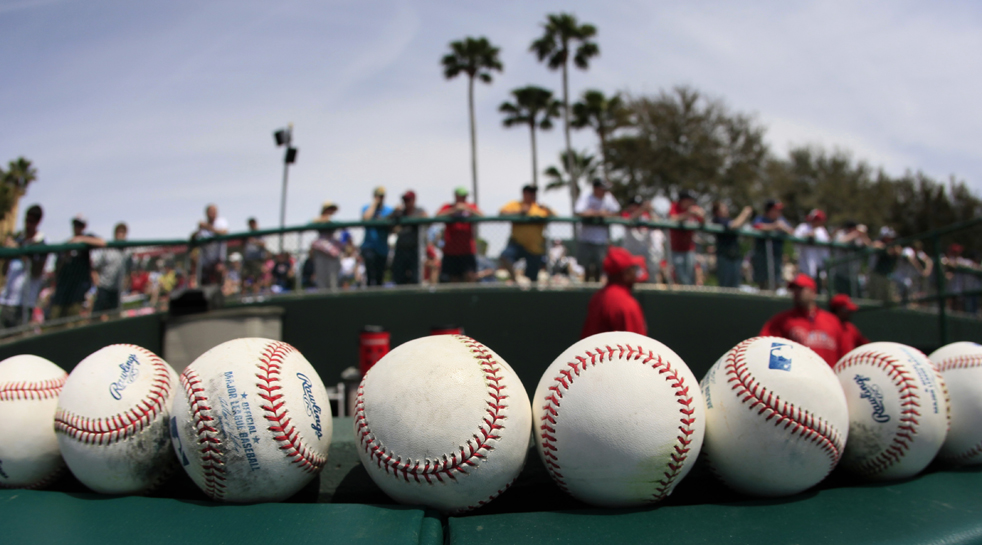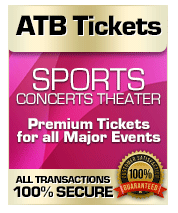First Pitch in May or Maybe June 2020?
5 min read
Fans stand above the Philadelphia Phillies bullpen before a spring training baseball game against the Atlanta Braves Wednesday, March 24, 2010 in Kissimmee, Fla. (AP Photo/Charlie Riedel)
MLB in May?
The possibility of starting the 2020 season is currently in the works.
The plan, sources said, would dictate that all 30 teams play games at stadiums with no fans in the greater Phoenix area but I’m sure there are a few hurdles to jump if this is going to come to fruition.
IMHO, we have a better chance of seeing baseball return in the month of June rather than a proposed May start date.
We must keep in ind that these games will still be played in empty ball parks in Arizona but at least the options are being considered and put on the table.
From what has been tossed around the league and the players union would still have to iron out things such as player testing,where do you find transportation and places to hold 30 teams?
A few details and proposals if they plan on going forward are as follows.
• Implementing an electronic strike zone to allow the plate umpire to maintain sufficient distance from the catcher and batter
• No mound visits from the catcher or pitching coach
• Seven-inning doubleheaders, which with an earlier-than-expected start date could allow baseball to come closer to a full 162-game season
• Regular use of on-field microphones by players, as an added bonus for TV viewers
• Sitting in the empty stands 6 feet apart — the recommended social-distancing space — instead of in a dugout
This seems like unrealistic that we can have this all in place for a may start date so what’s an extra month to cross our t’s and dot those I’s correctly if it means the difference between have a season and not having a season.
Stay tuned and stay safe.
If and when baseball does return here are a few betting tactics to help feed your interest in wagering again.

Look for value in the underdog.
The best baseball teams lose at least sixty games a year and the worst teams win close to that same number. The rest of the league falls somewhere in between. Consider that the more favorites you bet, the higher the percentage of wins you’ll need to break even. For example, if your average bet is a –150 favorite you’ll need to hit 60% winners just to break even. At –170, that number increases to 63% and so on.
Now consider the opposite. If your average bet is a +120 underdog, your break-even percentage drops to approximately 45.5%. At +140, its down to just over 42% and the higher you go the lower the breakeven percentage. Keeping in mind that even the poorest baseball teams seldom win fewer than 37% of their games, it is apparent that looking for opportunities to bet on underdogs is essential to profitable baseball wagering.
Set a limit for betting on favorites.
While most successful baseball bettors look to play underdogs first, favorites can frequently present good value as well. Often times, one will find a top team playing on the road as a minor favorite or other situations will present themselves where small favorites are a good play. To bet baseball successfully, you should implement a strict limit on how much you’ll lay on a favorite, say -150 or lower. Once you establish your “cut off” for wagering favorites, never wager more than that, regardless of the circumstance or situation.

Don’t place too much stock in starting pitchers.
Too many sports handicappers place too much emphasis on the starting pitcher. It’s understandable, of course, since the bookmakers list the starting pitcher when setting the line for each game. If you pay any attention to baseball, however, you’ll know that the quality of starting pitching has reached a state of equality, if not mediocrity. Sure, there’s a small number of elite pitchers, but all others are a cut below these few. And since you’ll never get these guys anywhere near your favorite cut off point, don’t worry about them.
It’s an obvious fact that baseball is a game of streaks, and nowhere is this more evident than in pitching. If a starter is demonstrating particularly good or particularly bad recent form, it might not be compensated for in the line and there may be value in playing on (or against) the starter in question. Overall, however, starting pitching receives way too much emphasis when evaluating baseball from a wagering standpoint.
Understand that baseball is a game of streaks.
This is no secret, of course, but it is something to be aware of when betting on baseball. No matter what else you find relevant about a game, you should think twice about betting against a team that has won three or more games in a row or on a team that has lost three or more games in a row. This may sound superstitious, but it’s a valuable rule to follow. You’ll always be better off in the long run by not going against a winning or losing streak the majority of the time.
Home field advantage just doesn’t matter.( It won’t in 2020)
Of all major sports, there may be less advantage to playing at home in baseball than in any other. This is especially true during the long regular season. Granted there are teams that do better in certain ballparks than others, but this is more a function of the design of the ballpark and the personnel of the team than any home field advantage. Some parks are clearly “pitcher’s parks” or “hitter’s parks”, but it works both ways – the opposing pitchers and hitters often have the same advantage or disadvantage as the home team’s players. Furthermore, bad teams are frequently overvalued at home, which results in good value on the visitor. Over the course of season, most teams will probably do better at home than on the road but the higher prices you’ll have to pay will negate this fact. More often than not, “home field advantage” shouldn’t be a consideration in handicapping a game.
Good Luck and happy wagering.




